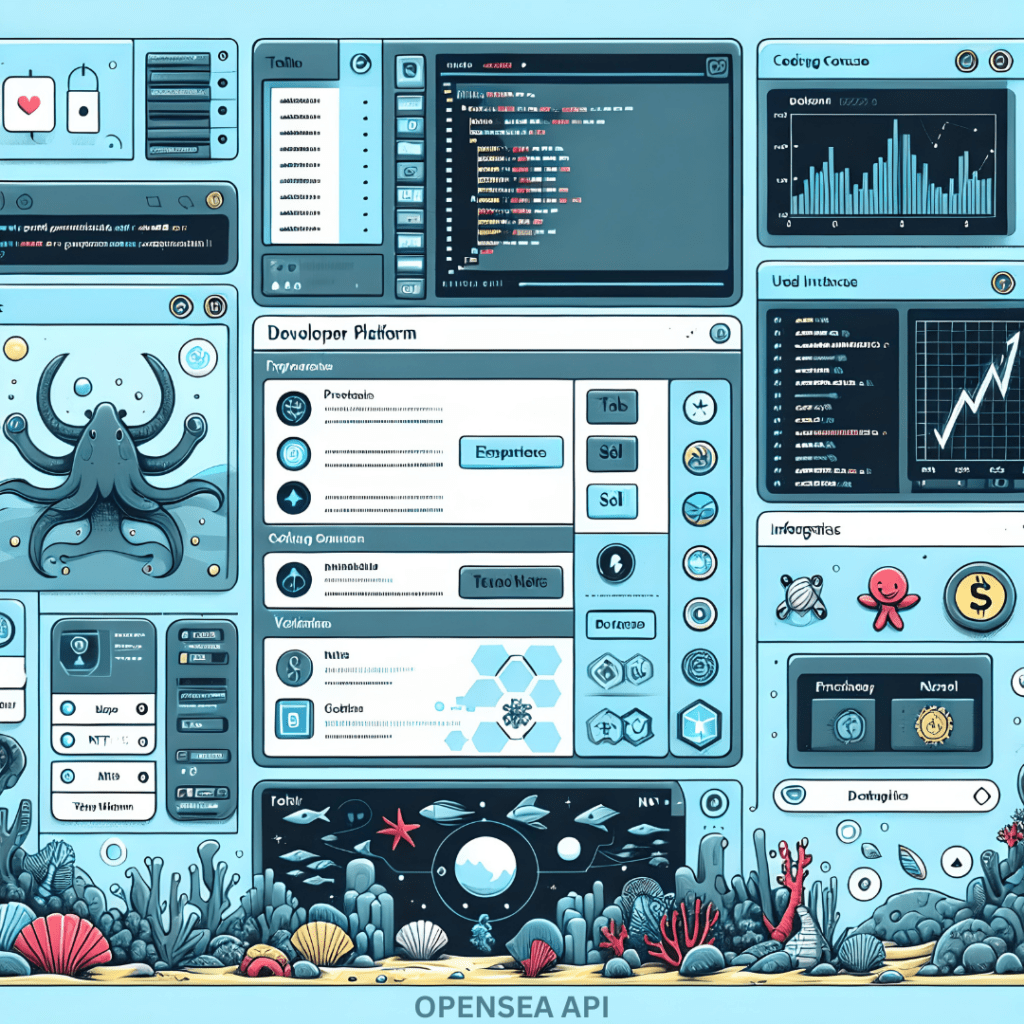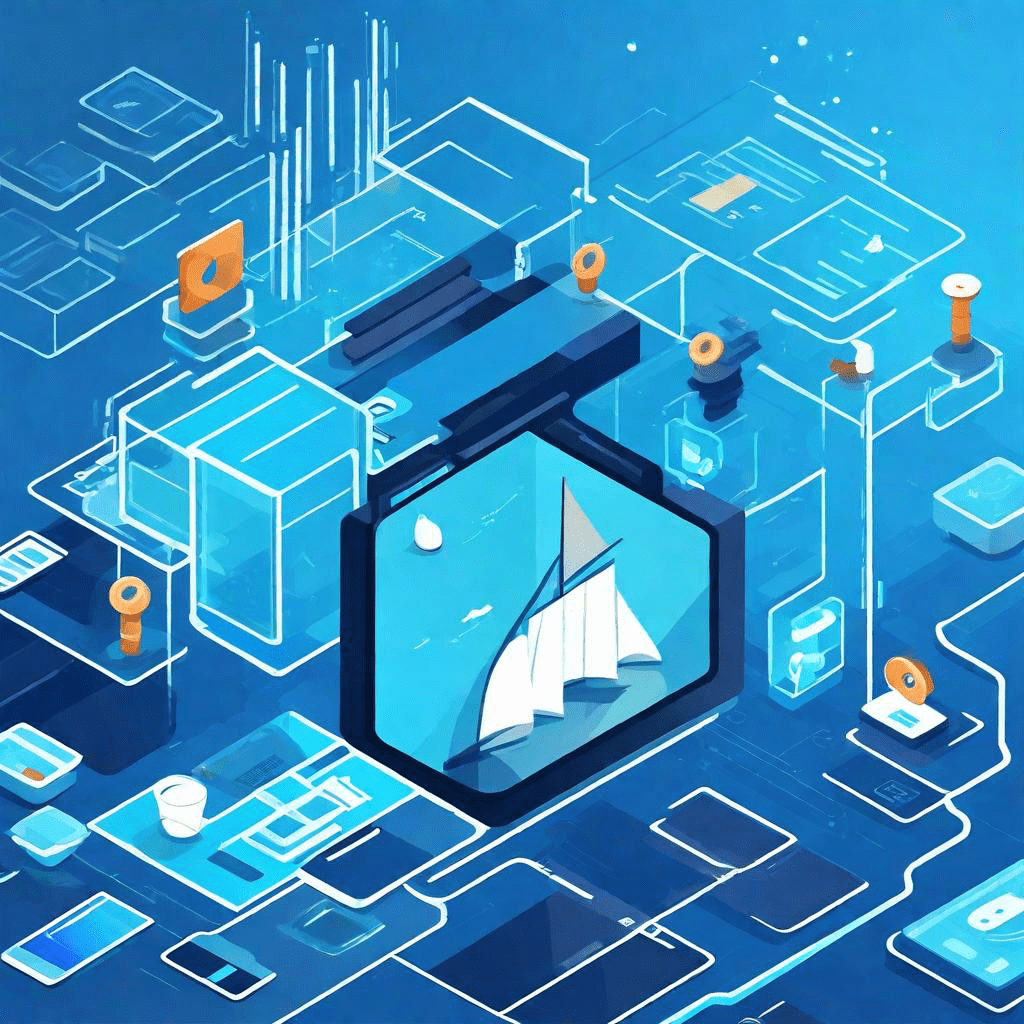OpenSea API – In the continually changing realm of blockchain and NFTs, OpenSea stands out as a pioneer, offering a horizontal, peer-to-peer marketplace for digital goods. This article thoroughly explores the intricate details of OpenSea’s platform, developer platform, investigating its characteristics, capabilities, and its influence within the broader Web3 community.
Understanding OpenSea‘s Marketplace
OpenSea API serves as a hub for buying, selling, and auctioning NFTs, rare digital items, and crypto collectibles. Its extensive integrations and tooling for decentralized applications (dApps) in the NFT space make it a pivotal player. OpenSea indexes and provides the largest dataset of NFTs, acting as a secondary market for popular collections and projects.
Token and Chain Support
OpenSea supports a variety of widely-used tokens and chains, actively expanding its compatibility list. It accommodates both ERC-721 non-fungibles and ERC-1155 semi-fungibles, showcasing its commitment to inclusivity. As a multi-chain platform, OpenSea facilitates development on Polygon and Klaytn in addition to Ethereum.
OpenSea’s Developer Tools
API Platform
OpenSea’s API platform empowers third-party tooling, with its REST API serving as the backbone for projects like MetaMask, Coinbase Wallet, and Rainbow. This API offers developers a smooth experience, allowing them to efficiently access and showcase metadata related to NFTs.
Application Development via the API
- Straightforward Showcase: An easy process to showcase NFTs and collections on the frontend.
- Comprehensive Data Access: Access to metadata about transactions, ownership, and other details for each asset and collection.
- User Wallet Monitoring: The ability to monitor any user’s wallet for NFT transactions and retrieve information about their assets.
- Robust Data Management: Tools for filtration and statistics by category, enhancing user experience.
- User-Friendly Documentation: OpenSea provides comprehensive documentation for a hassle-free start with their API.
Smart Contract Interaction via the SDK
For smart contract interaction, the SDK provides:
- Community Access: Access to the largest community in the NFT space through OpenSea’s exchange contract.
- E-commerce Functionality: Building e-commerce functionality that reads and writes to the blockchain without deploying additional contracts.
- Native Marketplaces: Building native marketplaces for the buying and selling of NFTs with various features and payment structures.
- Royalty Support: Built-in royalty support through the standardized Royalty Registry across platforms.
- Updated Documentation: Regular updates to the SDK documentation, ensuring compliance with the latest Solidity standards.
API Tooling
The OpenSea API offers endpoints for various indexed models, including assets, NFT collections, events, orders, accounts, and asset contracts. Some endpoints, like orders and events, are gated to prevent misuse, requiring developers to request an API key.
OpenSea API Models

Contracts
A contract deployed on the Ethereum network is linked to a sole owner account and is automatically executed according to pre-established terms and conditions.
Assets
Assets represent individual tokens emerging from a contract, containing metadata about each asset, including ID, owner, name, contract information, media, and creator-defined traits.
Orders
Orders represent an account-submitted intent to buy/sell an asset, existing off-chain and having types like bid or ask. They play a crucial role in facilitating trades.
Events
Events represent a change in the state of an asset, encompassing on-chain occurrences such as transfers, sales, and mints, along with off-chain events like bids and listings.
Accounts
Accounts represent users on the OpenSea marketplace through wallet addresses and associated usernames, participating as makers or takers in an order.
Collections
Collections gather assets within one or more contracts, holding metadata such as royalty details and social links. Well-known NFT collections include Bored Ape Yacht Club, CryptoPunks, and Crypto Coven.
API Calls
Some noteworthy API calls include fetching assets, detailed information about specific tokens, collections, collection statistics, events, and orders. These calls enable developers to create tailored experiences for users.
SDK Tooling
OpenSea’s SDK is an npm package for web developers aiming to integrate e-commerce functionality into their applications. The SDK, backed by the REST API, utilizes Web3.js for blockchain interactions, supporting features like fetching assets, making offers, creating listings, running crowd sales, fetching orders, buying items, accepting offers, and transferring items or coins.
The SDK also offers advanced features like scheduling future listings, purchasing items for other users, making bulk transfers of NFTs, creating bundles, using ERC-20 tokens as payment, private auctions, sharing sale fees with OpenSea, and event listening. Its easy setup via npm install and native integration with OpenSea’s exchange makes it a powerful tool for developers.
Community Adoption & Perspectives
OpenSea’s development platform has garnered widespread adoption across the Web3 community, integrated into various products and platforms, including Coinbase Wallet, MetaMask, Rainbow, and even Twitter for NFT profile photos. However, recent database outages have raised concerns about the centralized nature of OpenSea’s API index. Developers are encouraged to explore alternatives to minimize risks.
Final Thoughts
OpenSea’s Developer Platform for NFTs is undeniably robust, fully-featured, and user-friendly, providing extensive data read-and-write features for developers entering the NFT space. While the API itself is reliable, recent events highlight the risks associated with centralized dependencies. Developers are encouraged to explore both decentralized and centralized options to build resilient projects, and infrastructure providers should strive to match and compete with OpenSea’s powerful set of features.
Regardless of the chosen API, the NFT space continues to evolve rapidly, presenting exciting opportunities for Web3 developers to embark on a journey of innovation and widespread adoption. Now is indeed the perfect time to dive into the world of NFTs and contribute to the ever-expanding ecosystem.




